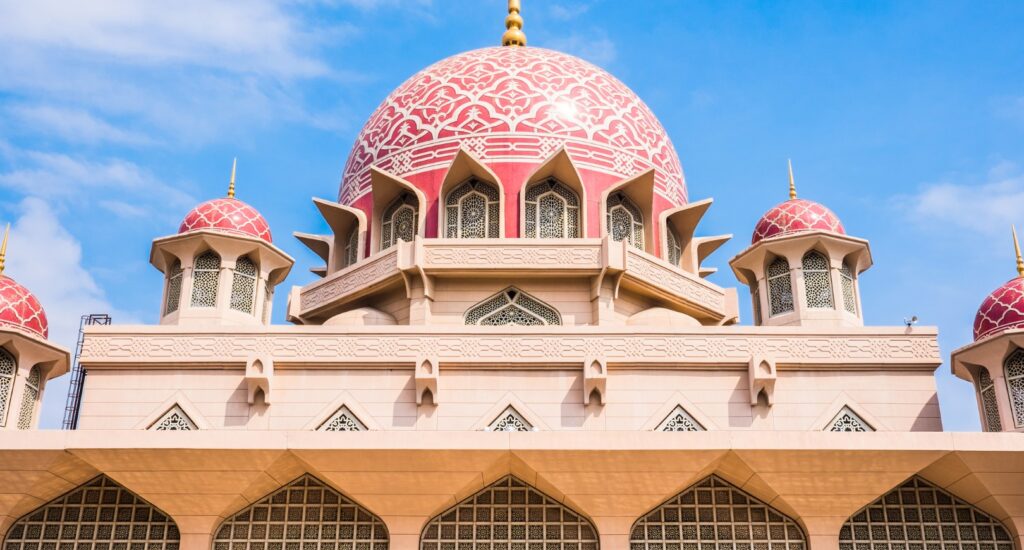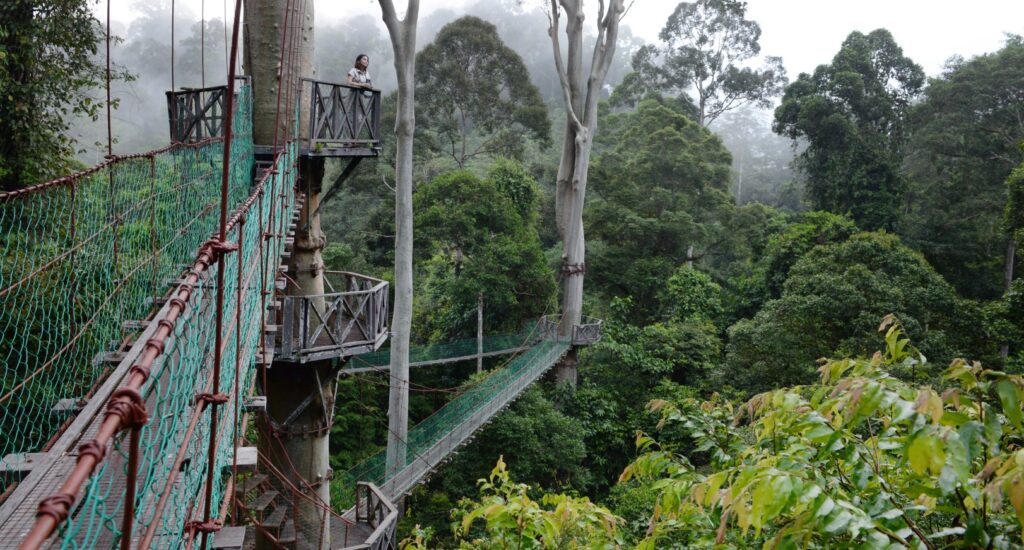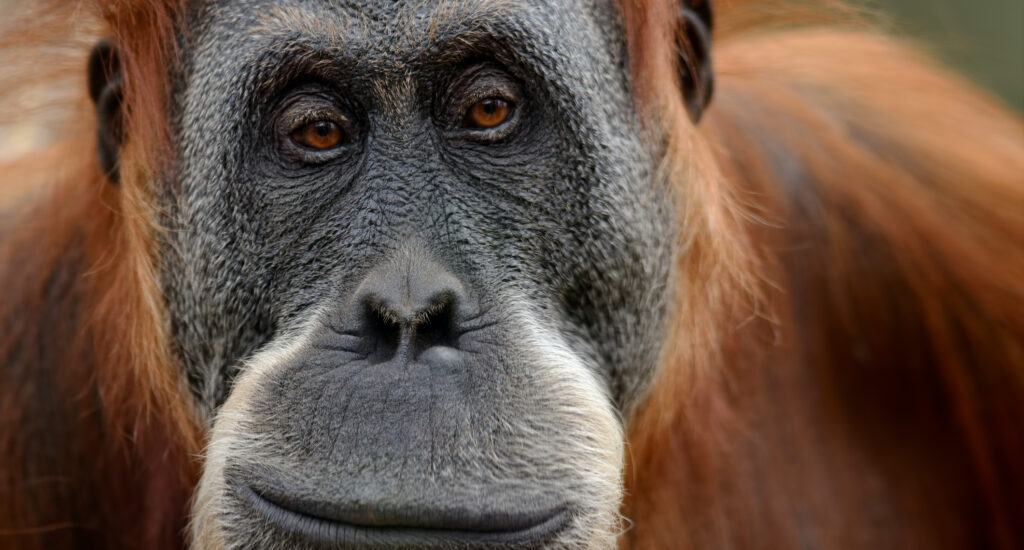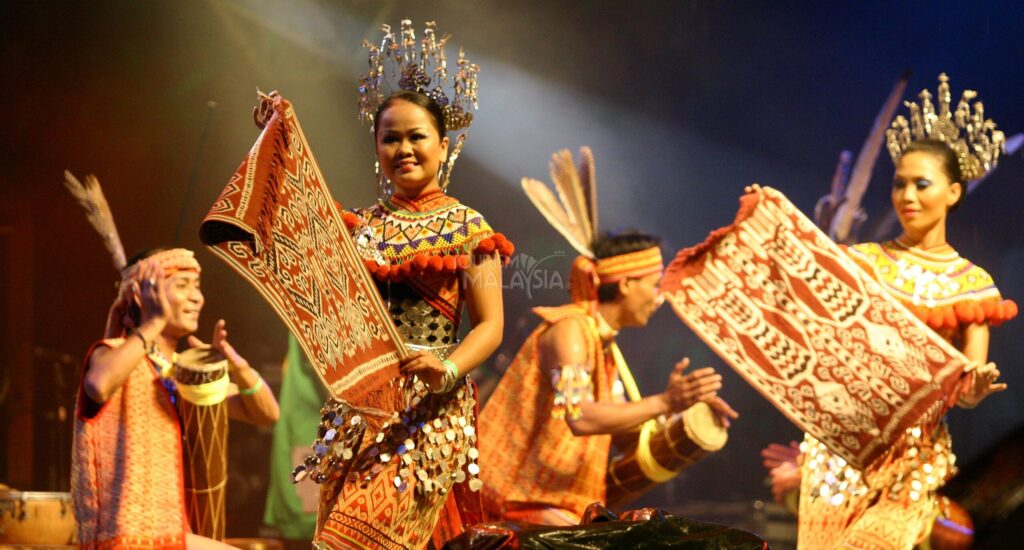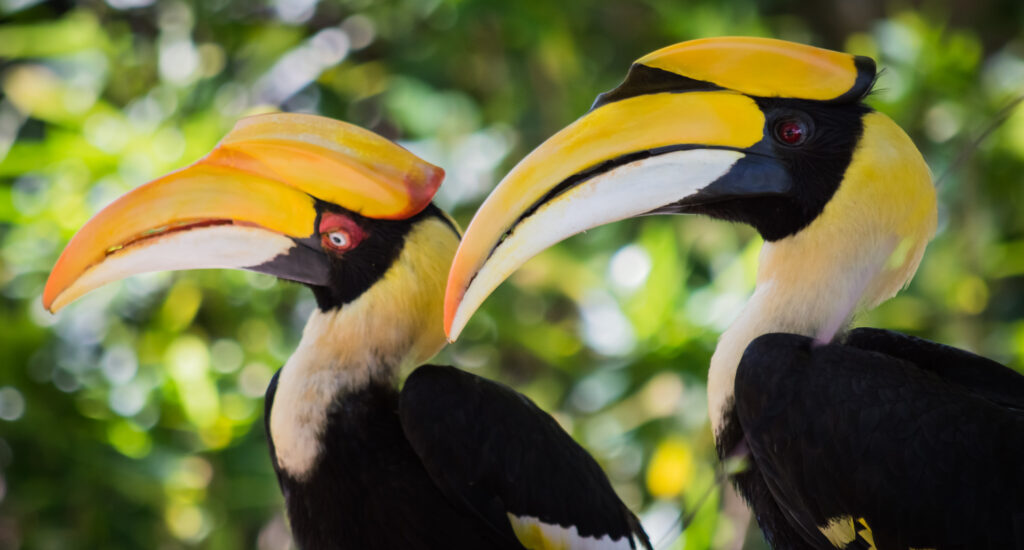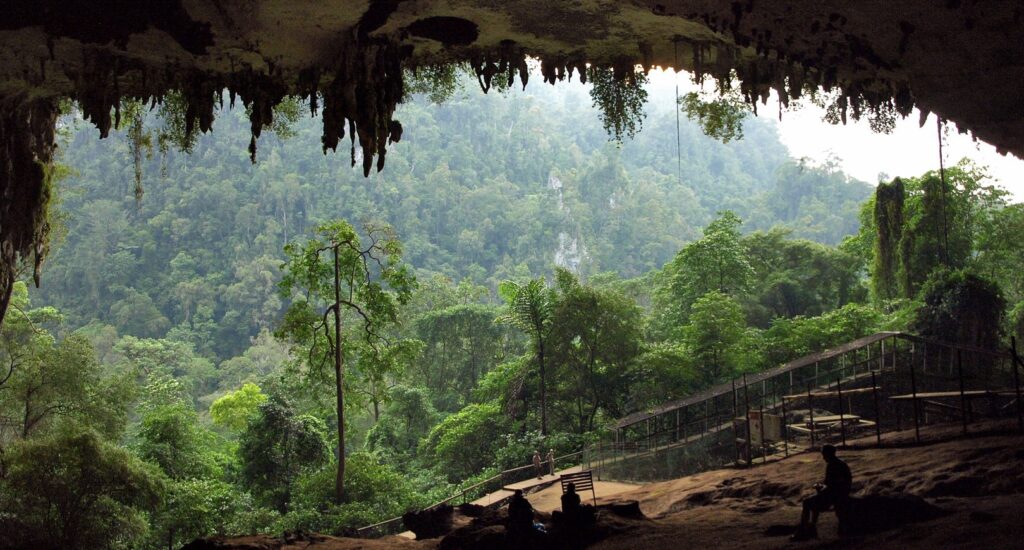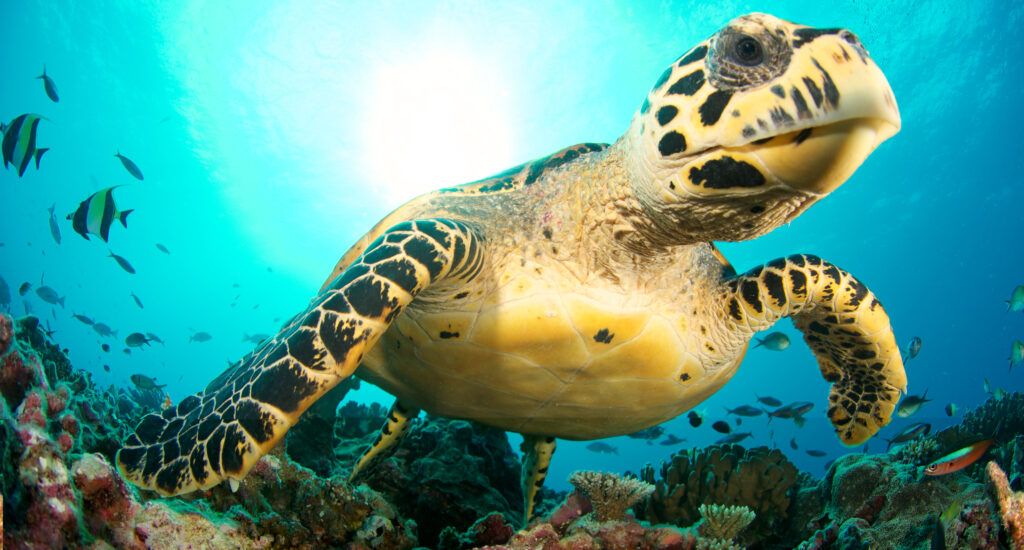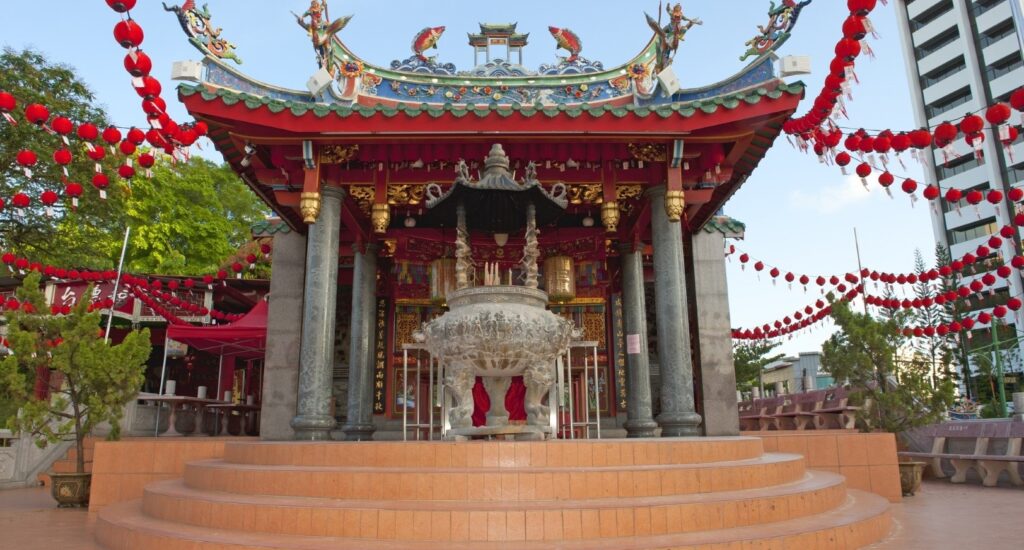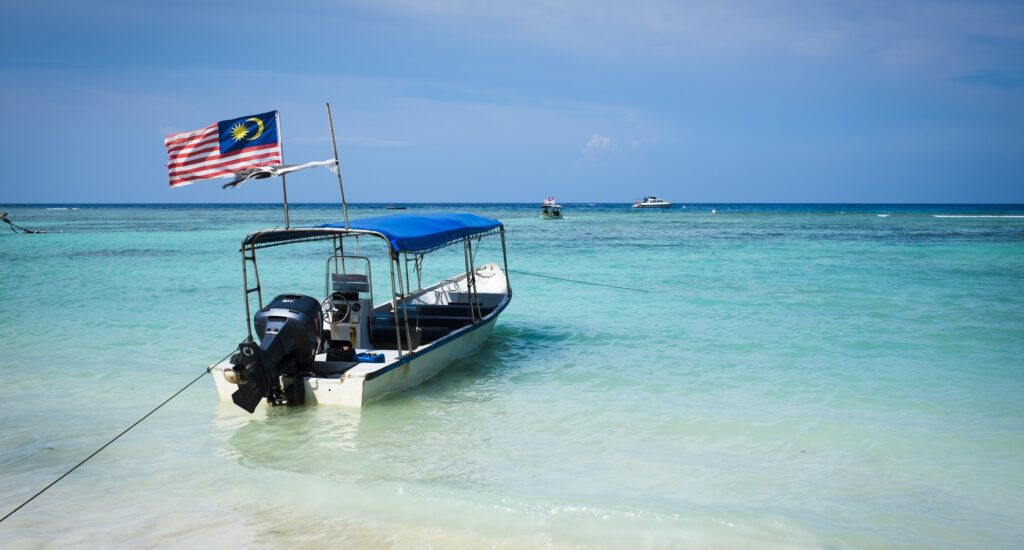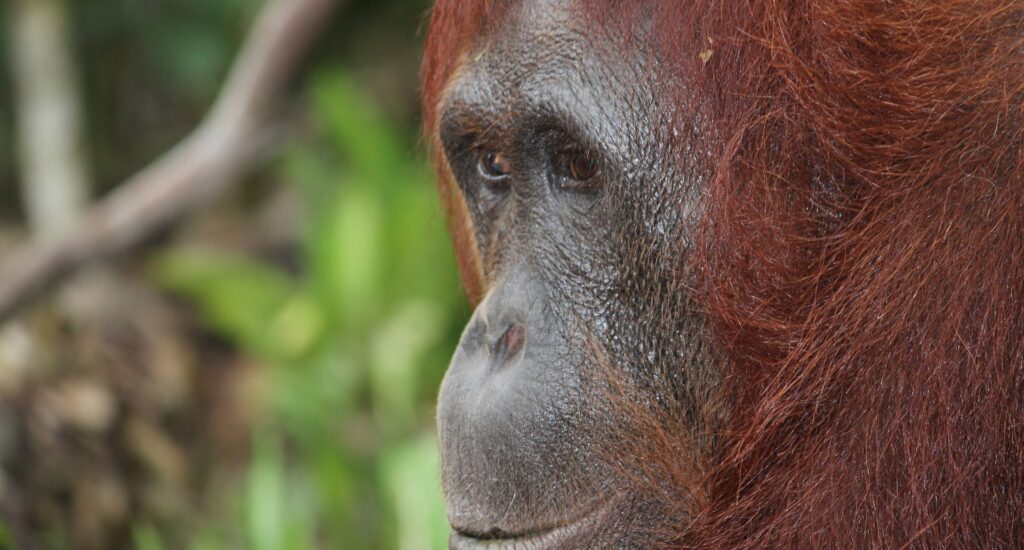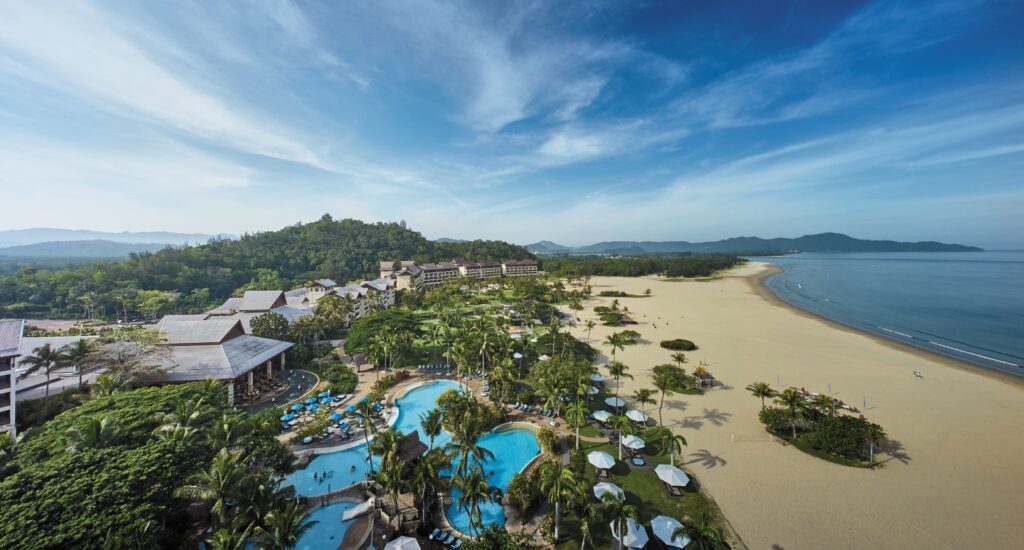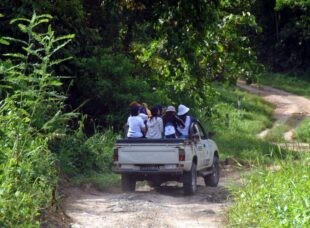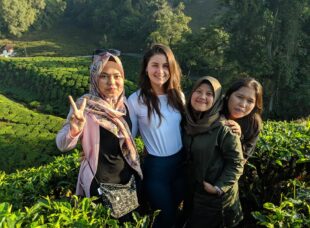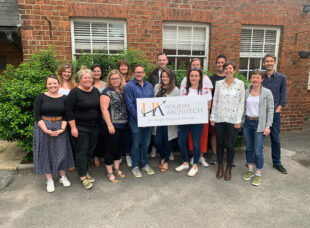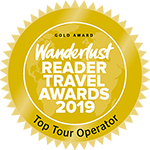Overview
Situated between Malaysia and the northern islands of Indonesia lies one of the most magnificent places on earth; an eden called Borneo. Spanning an area that is almost 745,000 hectares in size and straddling the equator Borneo is the third largest island in the world and divided into the states of Sabah and Sarawak under Malaysia, Kalimantan in the south under Indonesia, and the oil rich country of Brunei in the north.
The spectacular rainforests are teeming with life – from the endemic proboscis monkey, to the rare great ape; the Orangutan, to the critically endangered Sumatran Rhino. Within the towering canopy of ancient trees live an array of unique animals capable of soaring from tree to tree including flying dragon lizards, giant red flying squirrels and shy flying lemurs. Closer to the buttresses within the jungle undergrowth you may be lucky enough to spot mouse deer, bearded pigs, clouded leopards, the Bornean bay cat, otter civets or the largest of the ground dwellers, the Pygmy Elephant.
From the soaring peak of Mt Kinabalu at 13000ft high to the vast caverns deep within the Mulu National Park, the landscapes of Borneo are as remarkable as the wildlife that lives within them. Popular amongst adventure travellers, wildlife lovers, eco travellers and honeymooners looking for a private slice of paradise, Borneo has something for everyone. Families are also well catered for with easy wildlife viewing at the excellent rehabilitation and conservation centres, and pristine tropical islands dotted off the mainland. For a cultural immersion overnight stays can be arranged at the traditional longhouse dwellings of Borneo’s feared headhunters; the Iban tribes. The unique mix of cultures, religions, languages and cuisines are easily accessible for visitors to explore on any tour to Borneo.
When to Travel
Borneo is the perfect place to travel year round due to the tropical climate. Temperatures are averagely 27-32C with humidity of 80%. Rain is possible every day throughout the year. November to February marks the so call “wet season” but this mainly affects boat links to offshore islands or visibility for divers. It is also worth noting that during the winter months wildlife viewing in deeper Sabah can be hard due to the torrential rains, as wildlife seek shelter and can be hard to spot.
The best time to visit Borneo is from May to September when the days are warm and dry but you do need to book well in advance, as accommodation shortages are common. The wettest months in Borneo are from November to February. Temperatures year round are averagely 27-30C with humidity of 80%.
The best time to visit peninsular Malaysia is from March to October, when travel throughout the region is best. Travel during January and February, whilst somewhat wet, is very rewarding due to the significant festivals including Chinese New Year and Thaipusam. Beach holidays are possible throughout the year due to the opposite wet seasons in peninsular Malaysia.
Practicalities
Flights: There are no direct flights in to Borneo, but you can fly direct to Malaysia with British Airways or Malaysian Airlines to Kuala Lumpur, or travel over the border from Singapore, which you can fly to direct with Singapore Airlines, British Airways, Qantas, Norwegian Air or Virgin Atlantic. Hop on to Sabah or Sarawak with a short flight to Kuching or Kota Kinabalu with airlines including Malaysian Airlines, Singapore Airlines, Silk Air or Malindo Air. You can also fly to Borneo from Singapore or most Asian airports using budget airlines including AirAsia, Scoot, Firefly, Jetstar and Tiger. Connecting flights are also available to Kuala Lumpur or other cities with 1 stop via major hubs including Amsterdam (KLM), Paris (AirFrance), Istanbul (Turkish Airlines), Abu Dhabi (Etihad), Dubai (Emirates), Muscat (Oman Air), Doha (Qatar), Bangkok (BA, EVA Air, Thai Airways), Singapore (Singapore Airlines, Silk AIr) and Hong Kong (Cathay Pacific) . It is possible to break the journey in these places, perhaps adding on a city or beach break in Thailand or Dubai, or a city break in Singapore or Hong Kong.
A host of other airlines, European & Middle Eastern, fly to South-East Asia via their respective hubs, but rarely are these cheaper or more convenient. However, some do offer more options for those travelling from regional UK airports. We price up our flights on a case-by-case basis, making sure we use the best available deals for your trip. If you have any particular preferences for airlines or routes, or are considering upgrading your flights, please let us know so we can include this in your proposal.
Language: Malay (officially known as Bahasa Malaysia). Many other languages are spoken including English, Chinese & Tamil.
Currency: Malaysian Ringgit, indicated as RM. £1 is roughly equivalent to between RM5.5 – RM6. Bank notes come in denominations of 100, 50, 20, 10, 5 and 1.
Electricity: Electrical sockets in Malaysian Borneo are the “Type G” British BS 1363 type.
Clothing: Comfortable lightweight clothing in natural fabrics such as cotton is most suitable for travelling in Malaysia and Borneo. The dress code is fairly casual as in most parts of the tropics but it is advisable to cover arms and legs in the evenings against biting insects. A lightweight raincoat and umbrella are a good idea in the rainy season and an umbrella can also offer useful shade from the sun. Warm clothing is needed when visiting the Cameron Highlights, where temperatures can drop considerably as you increase in elevation. Visitors should not wear shorts, short skirts or other revealing clothing when visiting religious sites and ladies should always carry a scarf in case they wish to visit a mosque. For travel to Borneo you will require trekking boots or sturdy footwear as well as additional equipment depending on the activities you are booking.
Etiquette: Borneo is an extremely welcoming country, making it a pleasure to explore. The locals will be extremely friendly but you must be aware of some simple things – smile a lot, remove shoes before visiting a local home, use your left hand to accept objects, ask permission to take photos, don’t kiss in public or sunbathe nude and don’t ever raise your voice – getting visibly angry with people will prove to be totally counter-productive. If you have a problem, remain calm and become increasingly polite – and you will be helped.
Health
As we’re not medical experts we feel it is essential you contact your G.P. regarding vaccinations and the like for travel to Malaysian Borneo. In addition to such vaccinations as you’d routinely have for living in the UK, further boosters are recommended for Hepatitis A, Typhoid, Polio and Tetanus. If you have visited a country where Yellow Fever is endemic, you will need a certificate of vaccination.
You must talk to your GP first, but it is worth also drawing your attention to this useful website: www.traveldoctor.co.uk/ – an interactive website providing specialist health information for travellers plus customised lists of travel medicines, vaccines for holidaymakers, global adventure travellers and expeditions.
Malaria is present in pockets of deep hinterland areas of Sabah and Sarawak and a central area of Peninsular Malaysia. There is low to no risk in Kuala Lumpur, other urban/suburban areas and coastal areas.
Visas
Due to the current Coronavirus outbreak across the world please check the latest summary, health and entry requirements on the FCO Travel Advice pages here: https://www.gov.uk/foreign-travel-advice
Usual Advice: British nationals don’t need a visa to visit Malaysian Borneo and will normally be given permission to stay for 3 months on arrival. Visas for longer stays or for non-tourist purposes must be obtained from the nearest Malaysian diplomatic mission before you travel. For other passport holders, please check with your passport office for entry requirements.
To enter Malaysian Borneo your passport must be valid for a minimum of 6 months from the date of departure from Malaysia.
Food & Drink
Along with the multicultural Malay cuisine found throughout the peninsular, the foods you will devour on your journey through Sabah or Sarawak are influenced by the delicious indigenous fare using ingredients found in the wild rainforests. Each tribe has different ways of seasoning, cooking and preparing the fruits of the forest, meaning a food tour around Borneo never gets repetitive. A firm favourite (especially around a jungle campfire) is Bamboo Chicken – chicken, rice and spices sealed in a length of bamboo and cooked near an open fire. Delicious. Rice and noodles are staples for most meals and you won’t have to go far to find a nasi goreng, laska or sambal. A few typical dishes we recommend trying during your travels include Nasi Lemak, Nasi Goreng, Wan Tan Mee, Marmite Chicken, Sateh, Carrot cake, Dimsum and Beef Rendang. Or if you fancy something a little more adventurous then seek out these dishes; Siat or Butod – stir fried sago grubs (a popular protein source in Sabah) or Tuhau (found in interior Sabah) – not a dish but a wild ginger that you will either be a lover of, or a hater of…let us know what you think. Turning to something a little sweeter, Malaysian’s love the sweet stuff and you will find just as many dessert shops, bakeries, candy stores and cake shops as you will local restaurants and food courts. Sweets, Kuih, incorporate coconut and palm sugar, combined with sweet and savoury flavours, or if you are looking for something a little more familiar then you won’t have to look far to find waffles, pancakes, ice cream or cakes. Although many people think Malaysia is a dry country, this is certainly not true and alcohol is available throughout most states easily and cheaply. However, tourists heading to the East of the country should be prepared that prices may be inflated within the resorts. Outside of hotels alcohol can be few and far between, so you may need to pick up a supply as you head through duty free. Away from alcohol you can quench your thirst with these popular Malay beverages; Teh Tarik – Malaysian pulled tea, Barley Juice, White Coffee, Longan Juice or an English inspired tea from the central plantations.
Travellers Code of Conduct
– We provide all of our clients with a “Travel Facts” document upon confirmation of your booking. This details useful facts and travel advice for your chosen destination, including restaurant recommendations, reading tips, basic language, cultural traditions, climate information and brief historical overviews. We feel that this offers a useful insight into the country you are visiting, and can help you interact with local residents in a more sensitive, well informed manner. Please try to take the time to read this information before your visit, if at all possible.
– A number of the countries in which we operate holidays are religious societies with a widely observed set of customs. Always respect these norms, particularly when visiting religious buildings.
– To the best of our knowledge, all of the hotels, lodges and camps within our portfolio operate stringent measures to minimise water usage. All of our destinations have issues with water supplies to a certain extent so feel free to raise any possible wastage should you encounter it during your stays, either with the accommodation or with us upon your return.
– Please ask before taking photographs of people, and respect their wishes should an individual not be happy to be photographed. We find that friendly requests and a smile are usually met with assent.
– Strive where possible to make your own contribution to environmental practices within the destination you are travelling. This might include minimising your electricity usage, avoiding smoking in protected areas, sticking to marked roads at all times while self-driving, avoiding coral while snorkelling and safely disposing of all litter (recycling where possible).
– Where possible, try to purchase from local suppliers. This includes shopping for souvenirs, eating out in restaurants and booking further excursions during your free time. In areas where haggling are an accepted part of daily life, don’t become angry or offended if you are unable to obtain what you perceive as a fair price for an item. We emphasise to local suppliers that our clients should never be taken on unsolicited shopping trips, but if this does happen, try to retain your sense of humour, provide a firm refusal to participate and tell us about this on your return. We pass on all feedback from every trip undertaken with Holiday Architects to the relevant local suppliers, who share our commitment to travelling with sensitivity.
– Please don’t remove any indigenous items from their natural habitat and attempt to bring them back as a souvenir. This particularly applies to coral, shells, plants and food in the natural world, and to cultural artefacts and antiques.
– If you are unsure about anything relating to the above, please feel free to ask our local suppliers or your Holiday Architects specialist. All of these people either live or have travelled extensively in the country you are visiting and will be more than happy to offer their considered advice.


